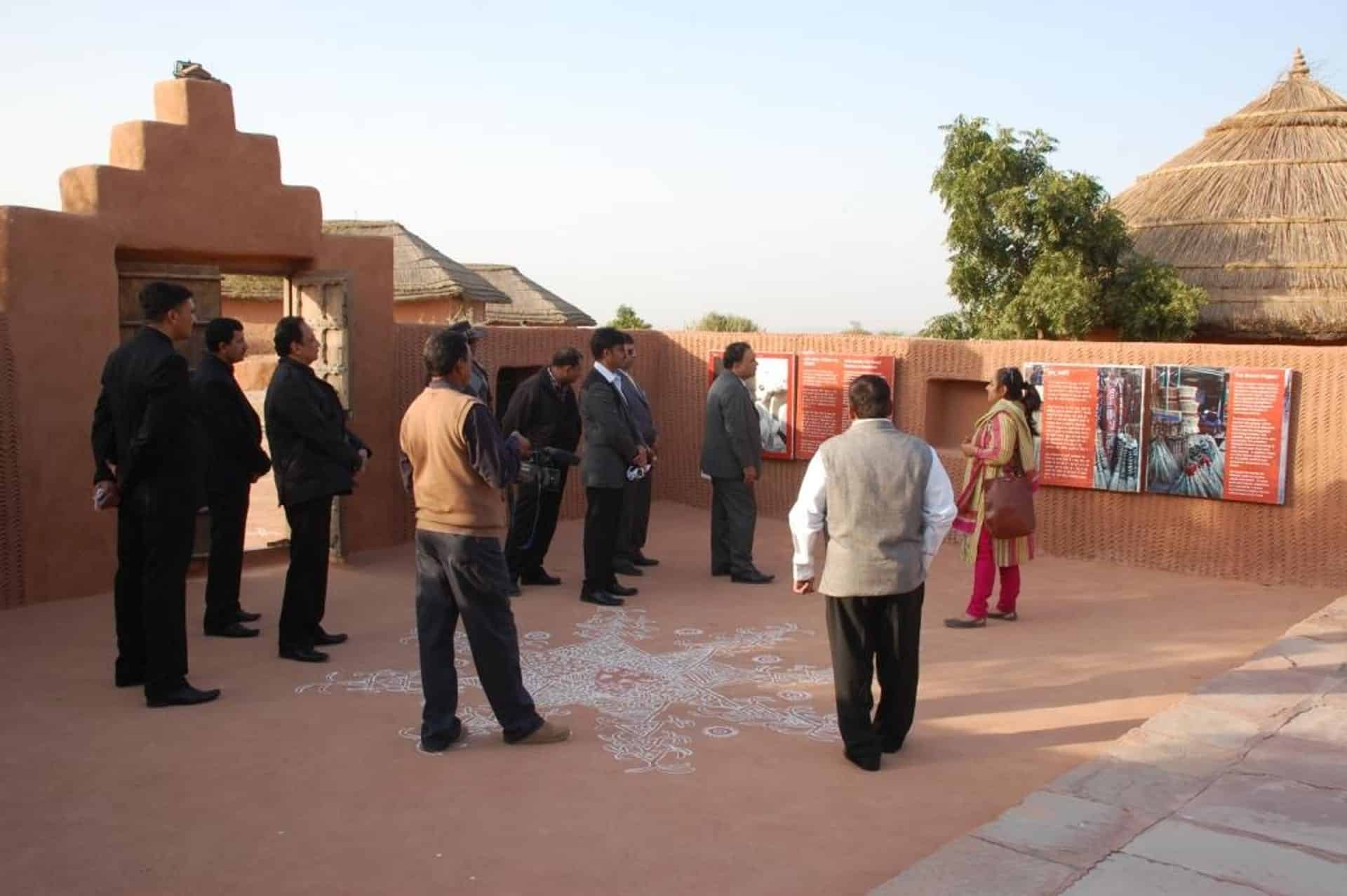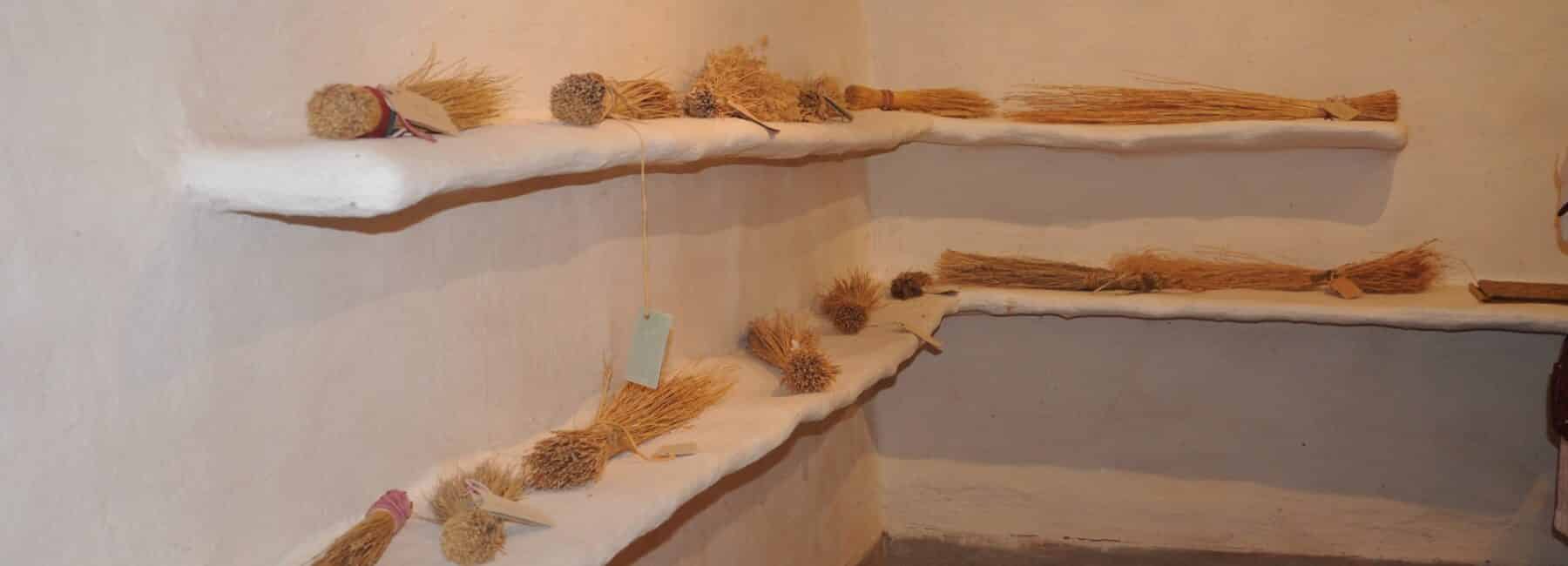The Rupayan Sansthan Archives in Jodhpur form one of the most comprehensive repositories of Rajasthan’s folk traditions. The collection spans over 7,000 hours of audio and video recordings, along with a smaller but significant set of photographs and field notes documenting folklore, performing arts, crafts, and everyday life in western Rajasthan.
This archive complements the work of Arna-Jharna: The Desert Museum of Rajasthan, providing the research foundation on which many of the museum’s exhibits and interpretations are built.

The recordings in the archive capture oral narratives, songs, musical performances, rituals, and interviews with community members. They document not only artistic expression but also the knowledge systems and practices that define sustainable living in the desert – from water harvesting to material use and craft techniques.
Over decades of fieldwork, researchers, musicians, and storytellers have contributed to building this body of knowledge. The archive now serves as a living record of the region’s cultural diversity and continuity.
The archive is regularly accessed by scholars and institutions studying folklore, ethnomusicology, anthropology, and regional history. Over the years, it has hosted and supported research by many leading academics, including:
Their collaborations have helped expand the understanding of Rajasthan’s performing arts and oral traditions in global academic contexts.

Rupayan Sansthan welcomes researchers, scholars, and cultural institutions to collaborate on projects related to Rajasthan’s folk culture, oral history, and performance traditions. The archive is available by appointment for study and documentation work.
Institutions and departments interested in joint research, digitization, or field documentation can reach out to the Sansthan to explore partnerships. These collaborations aim to preserve not only recordings but also the relationships and community knowledge that sustain this cultural ecosystem.
The archive continues to grow – not as a static collection, but as a living record of Rajasthan’s regional identity. Together with the museum, it helps bridge the gap between field and exhibition, ensuring that the voices, songs, and stories of the desert remain accessible for learning, research, and reflection.

To plan your visit or request a customized experience, please contact us at rupayansansthan@gmail.com or call +91 9772434111.
Bookings should be made at least one week in advance.